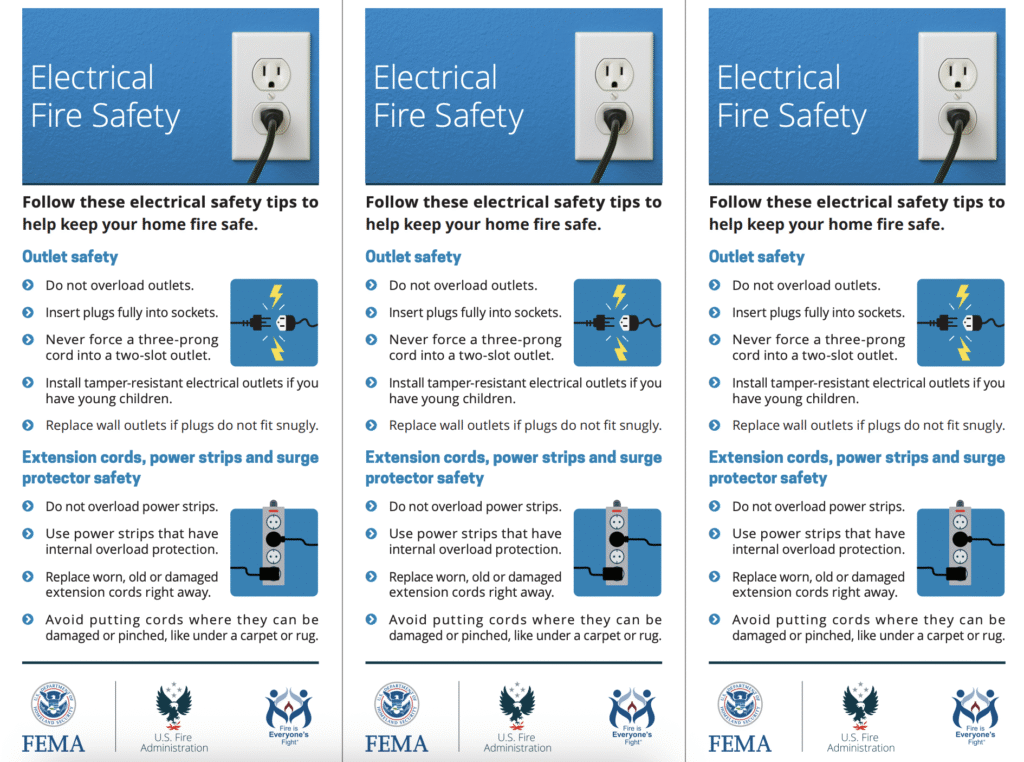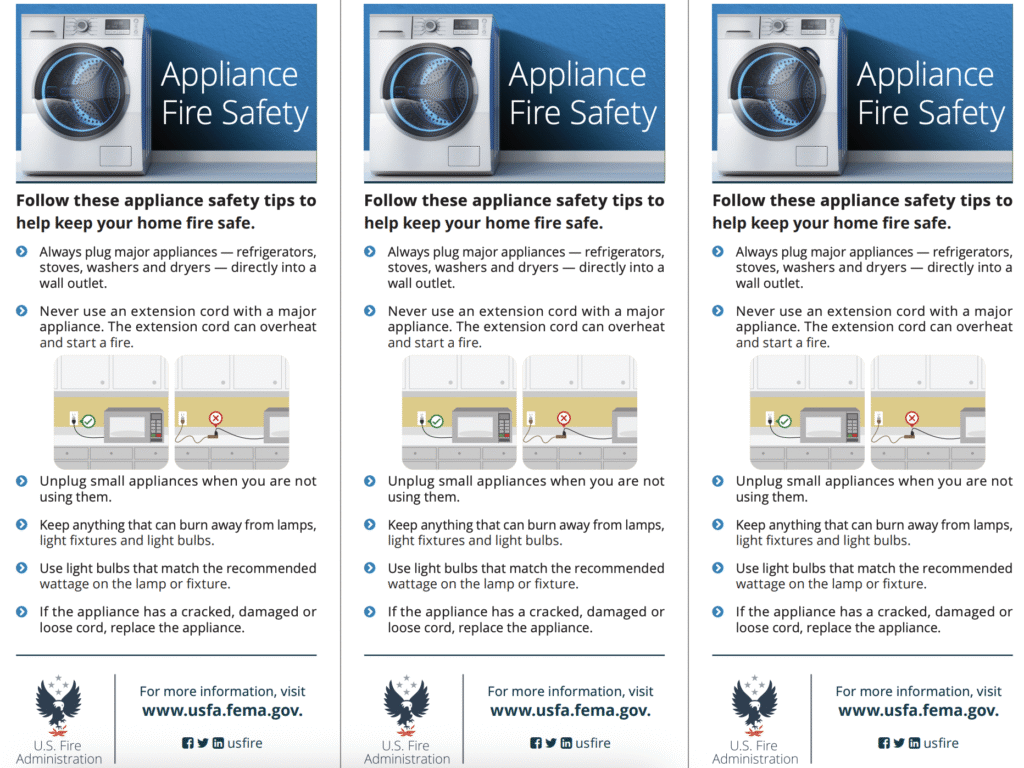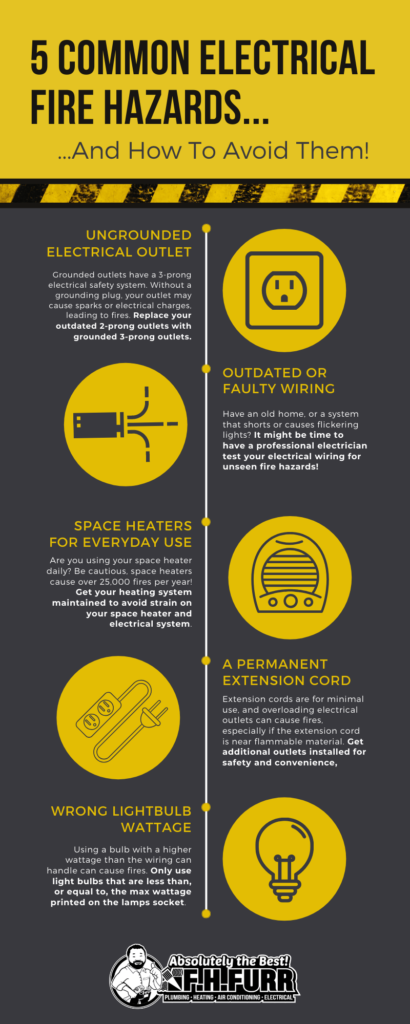

🔥 What is an Electrical Fire?
An electrical fire starts from damaged or overheated electrical components, wiring, or appliances. These fires spread quickly and can cause severe property damage and loss of life.
⚠️ Common Causes of Electrical Fires

- Damaged wiring – worn, frayed, or loose wires overheat.
- Malfunctioning appliances – faulty cords, heaters, AC units, or kitchen devices.
- Overloaded circuits – too many devices plugged into one outlet.
- Improper extension cords/power strips – replacing permanent wiring or overloading.
- Faulty outlets & switches – loose or damaged connections.
- Defective lighting fixtures – using wrong wattage bulbs or faulty fittings.
- Proximity to heat sources – wires near flammable items.
- System faults – short circuits, sparks, or arcs.
🚨 Warning Signs of Electrical Fire
- Burning smell (plastic or rubber).
- Smoke from outlets or appliances.
- Sparks from plugs or switches.
- Discolored or scorched outlets.
- Hot outlets or switch plates.
- Flickering lights with burning odor.
- Frequently tripped breakers.
🧯 What to Do During an Electrical Fire
- Alert everyone nearby.
- Disconnect power if safe.
- Never use water on electrical fires.
- Use safe suppression methods:
- Class C / CO₂ fire extinguisher
- Non-flammable blanket
- Sand or baking soda (for small fires)
✅ Electrical Fire Prevention Tips
1. Perform Regular Maintenance
- Replace damaged cords/outlets immediately.
- Use circuit breakers & GFCIs.
- Hire licensed electricians for inspections.
2. Practice Safe Electrical Habits
- Don’t attempt DIY electrical repairs.
- Don’t run cords under carpets.
- Unplug unused appliances.
3. Emergency Preparedness
- Plan evacuation routes.
- Train family/workplace members on fire extinguisher use.
4. Install Smoke Alarms
- Place alarms on every level of your home.
- Test monthly, replace batteries yearly.
5. Keep Proper Fire Equipment
- Use Class C (Electrical) extinguishers.
- In workplaces, also consider CO₂ or AB Dry Powder extinguishers.
🏠 Home Safety Tips
- Avoid overloading sockets.
- Keep flammable items away from outlets.
- Never leave stoves or heaters unattended.
- Switch off the main power before long trips.
🏢 Workplace Safety Tips
- Use insulated cables & maintain devices.
- Keep flammable materials away from outlets.
- Provide accessible Class C extinguishers.
- Conduct annual fire drills & training.
- Shut off power immediately during a fire.
🔌 Devices That Prevent Electrical Fires
- GFCI (Ground Fault Circuit Interrupter) – cuts power instantly if leakage is detected.
- Circuit breakers – trip to prevent overload.
📌 Basic Fire Safety Rules
- Never repair electrical faults if untrained.
- Don’t overload circuits or extension cords.
- Always use the correct fuse size.
- Keep ladders & tools non-conductive when working near electricity.
- Label breakers & fuses for quick emergency action.


